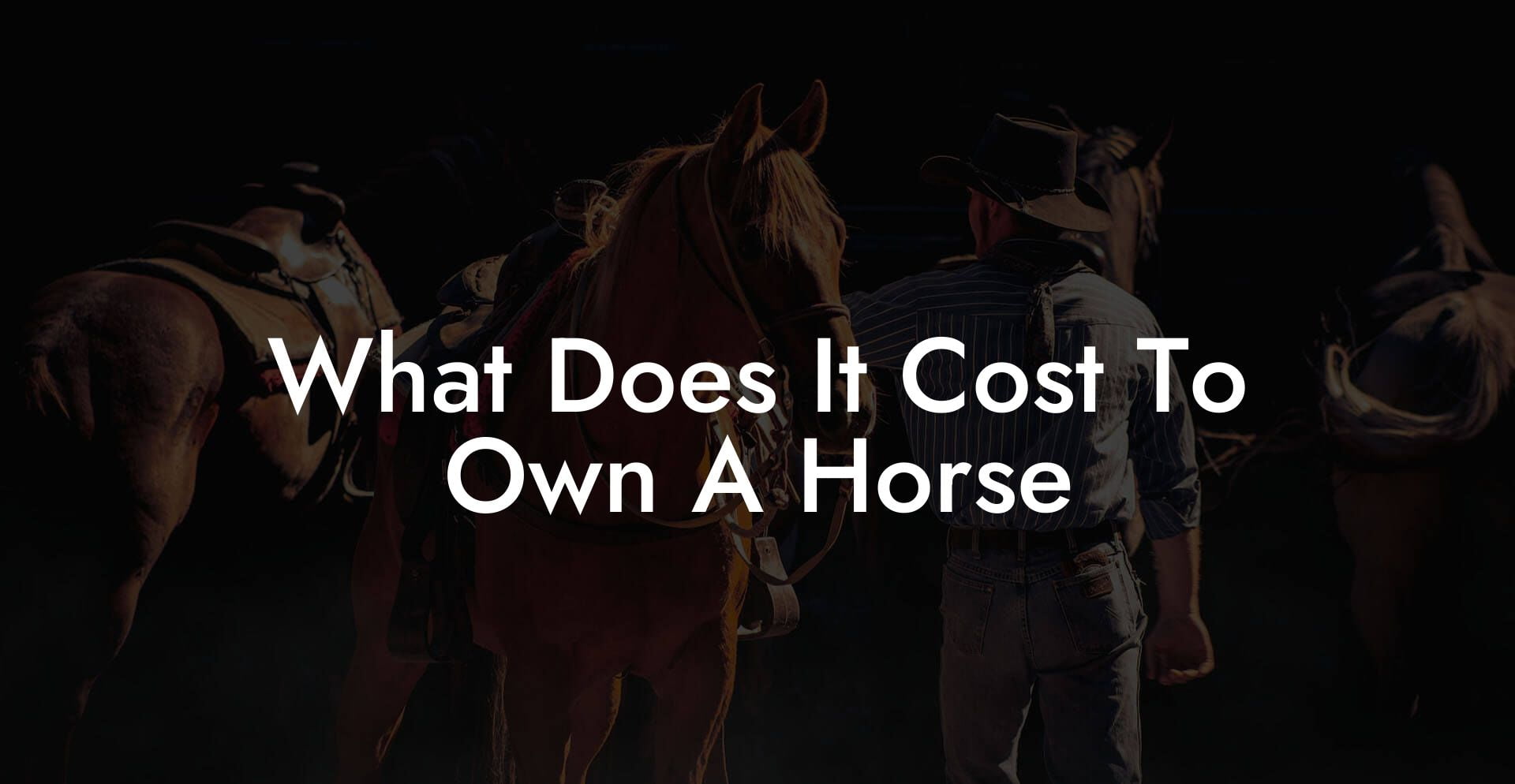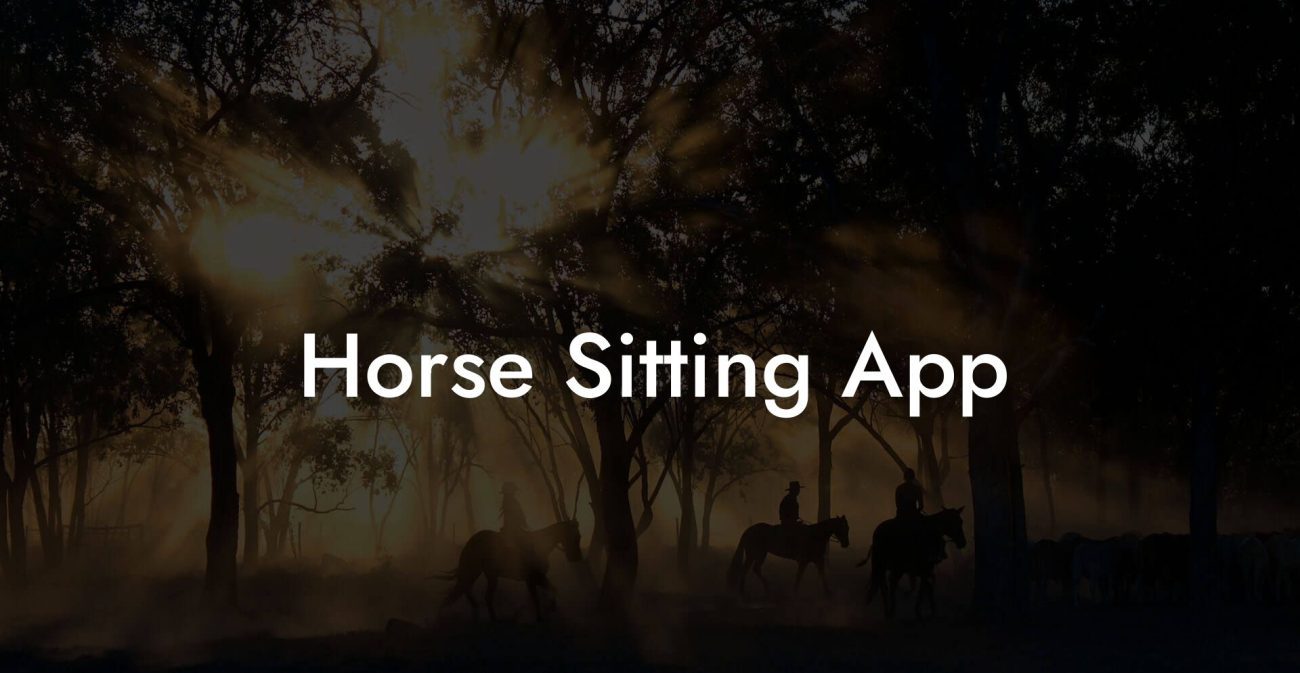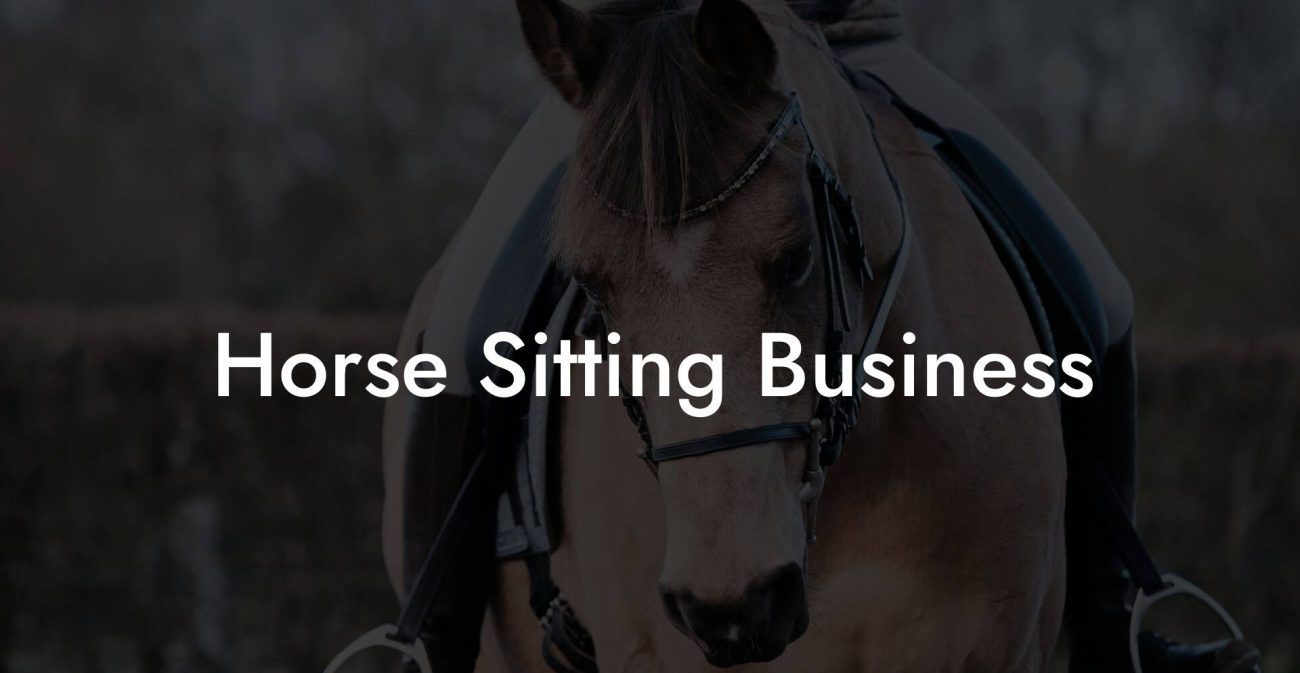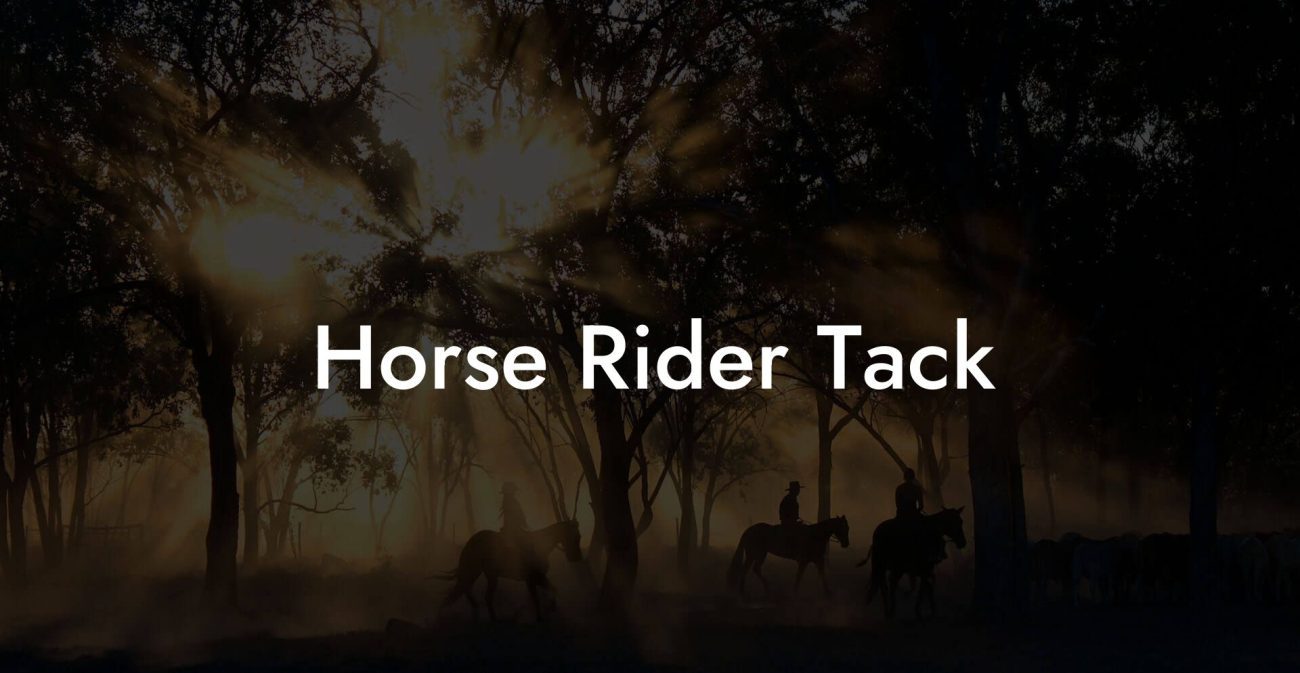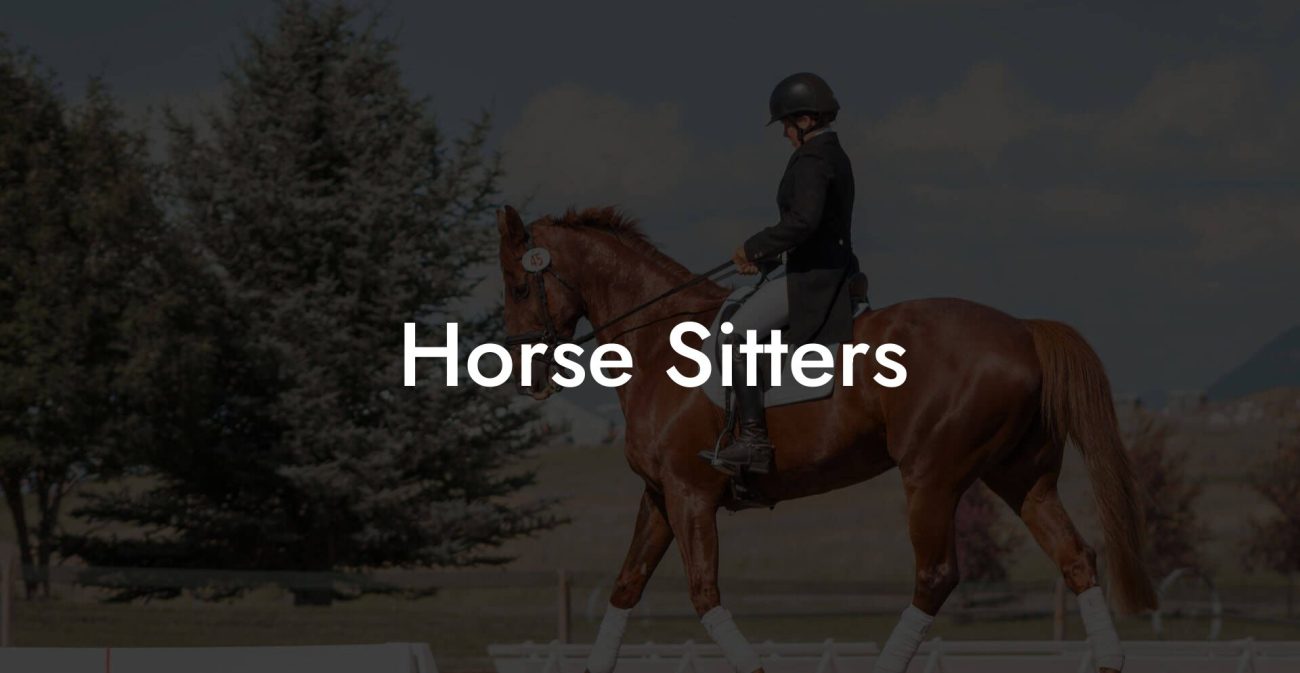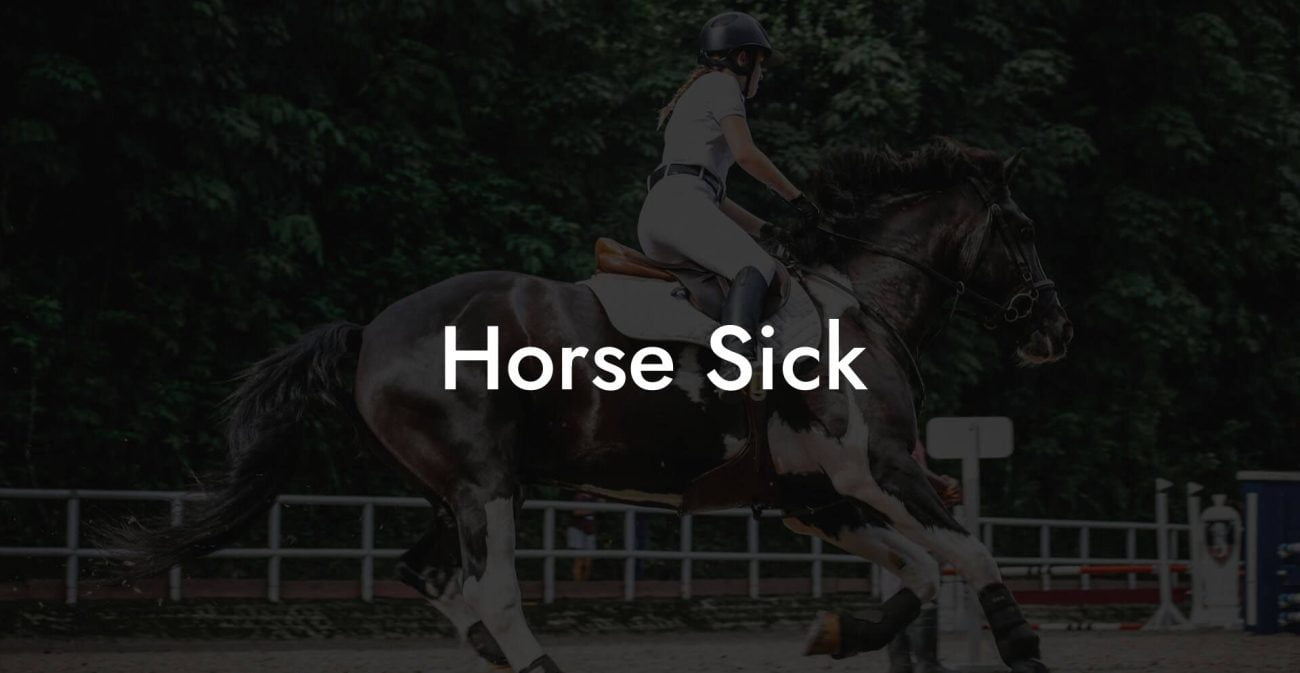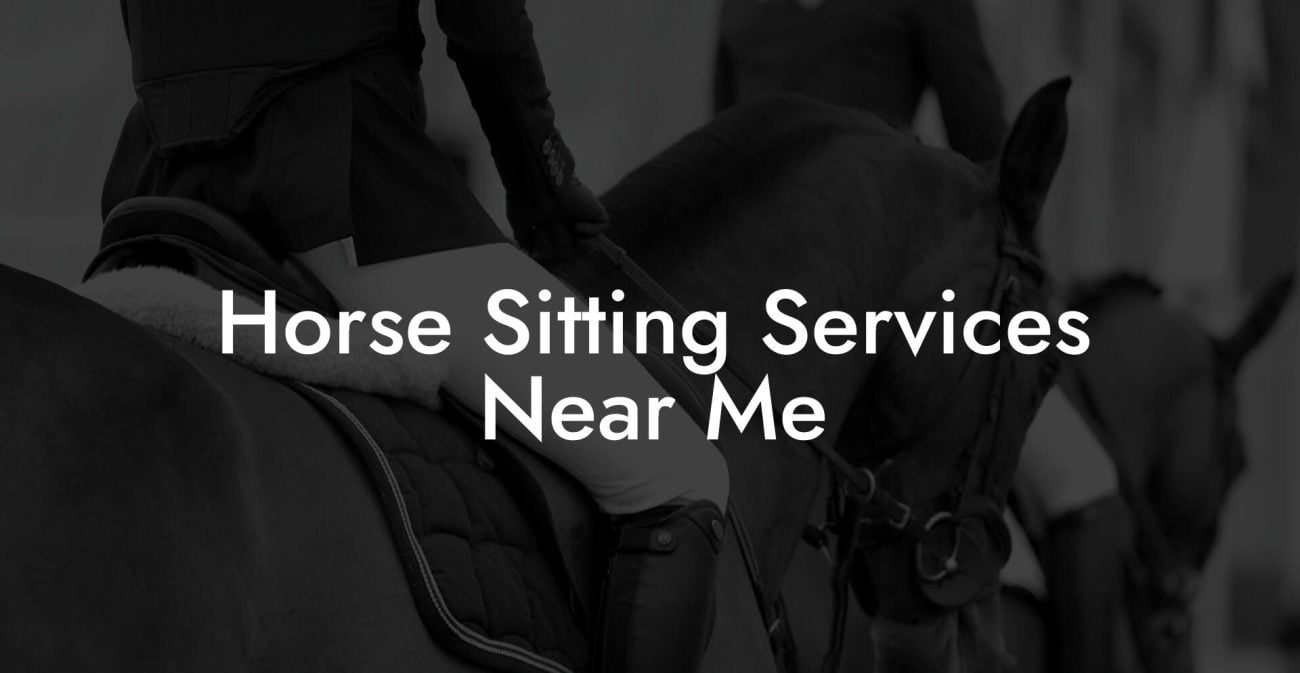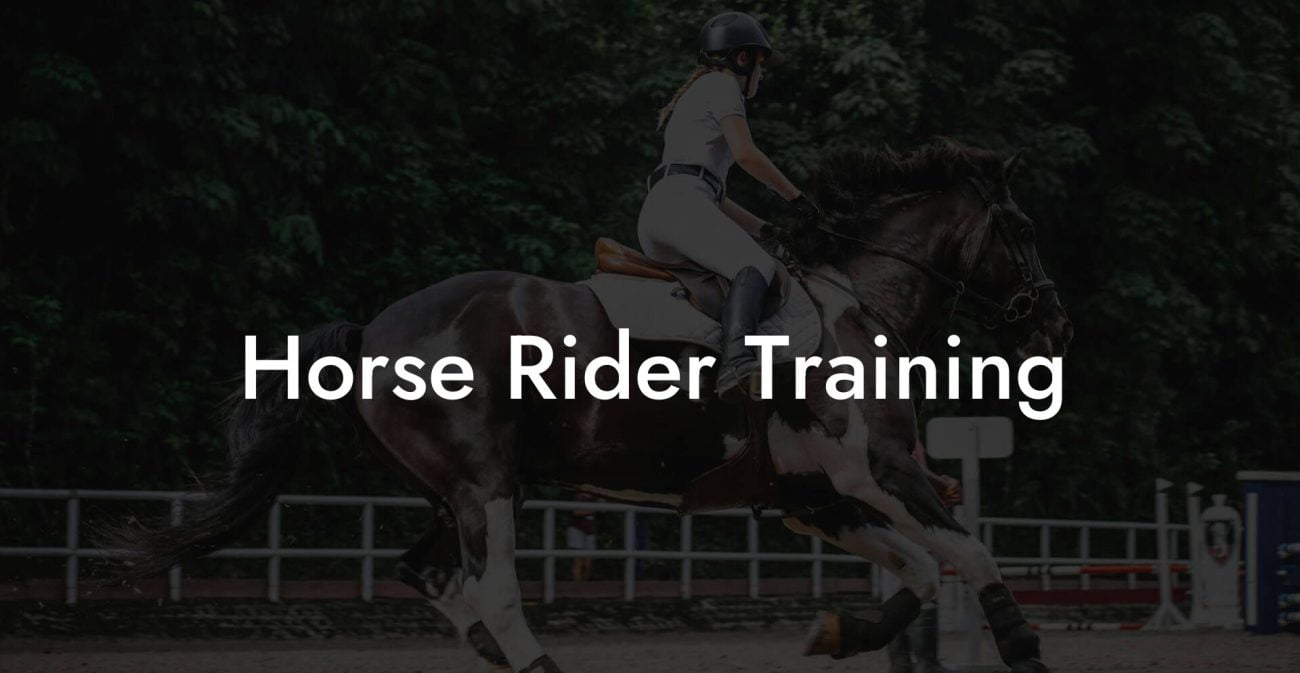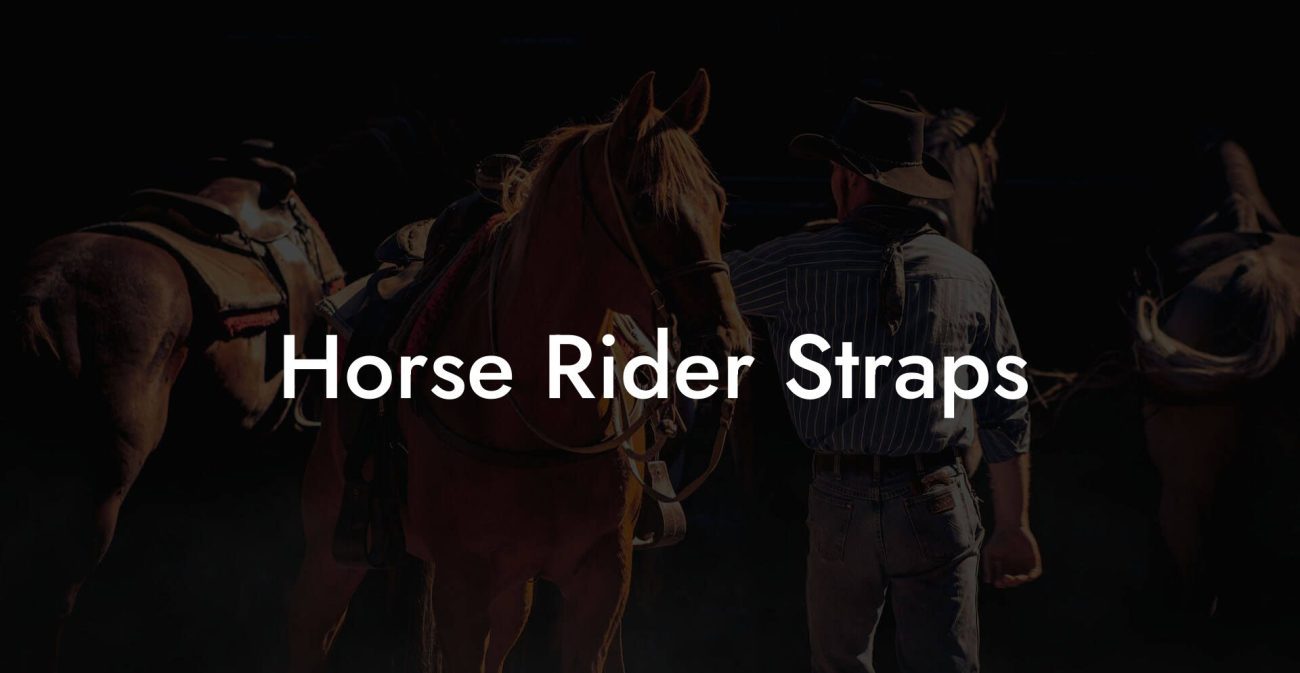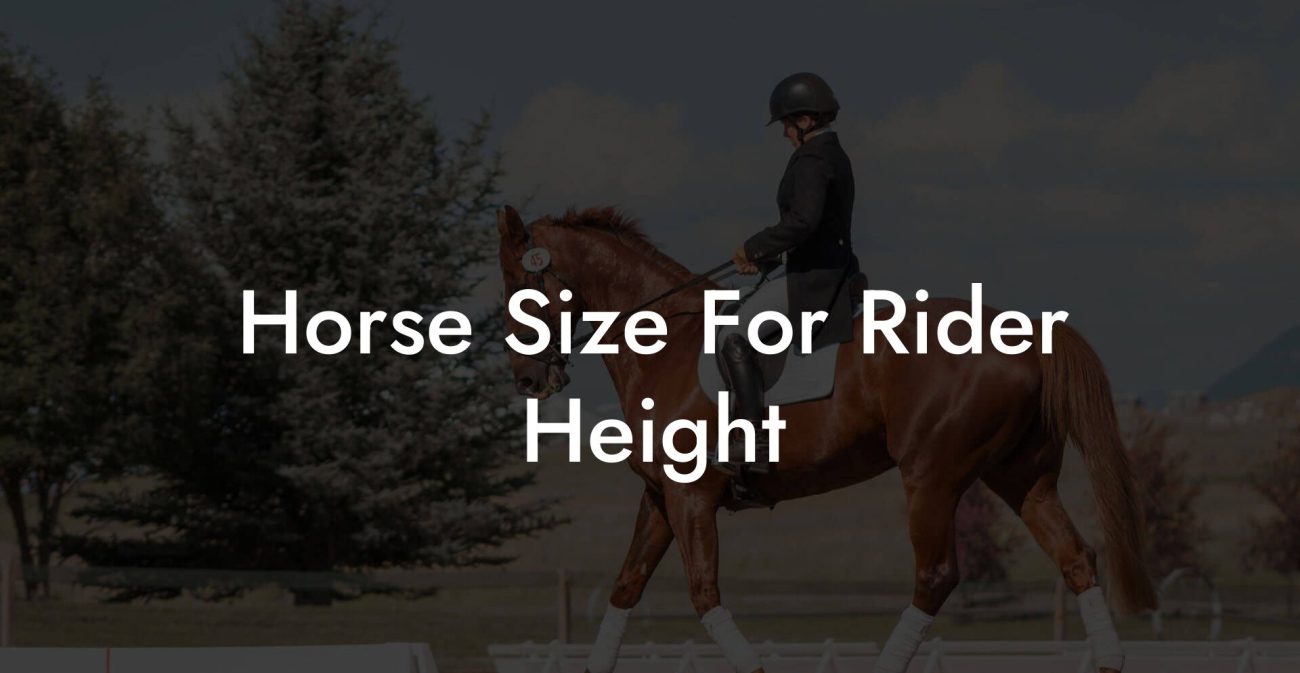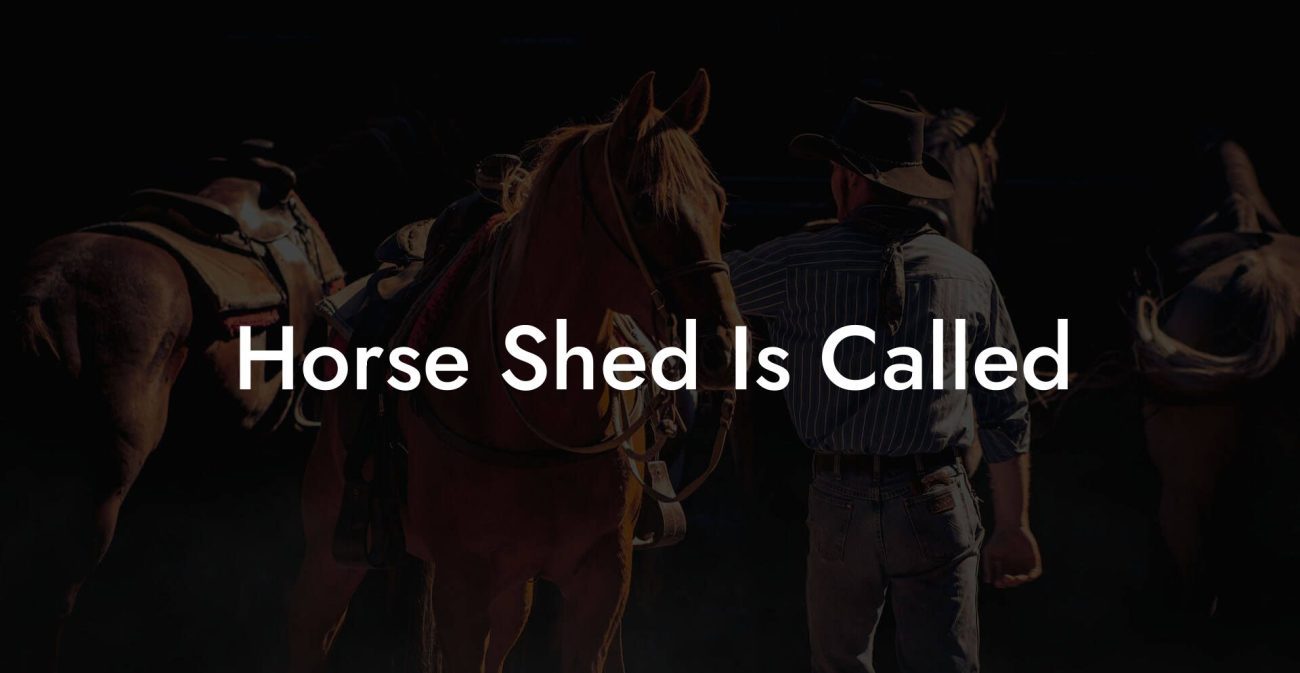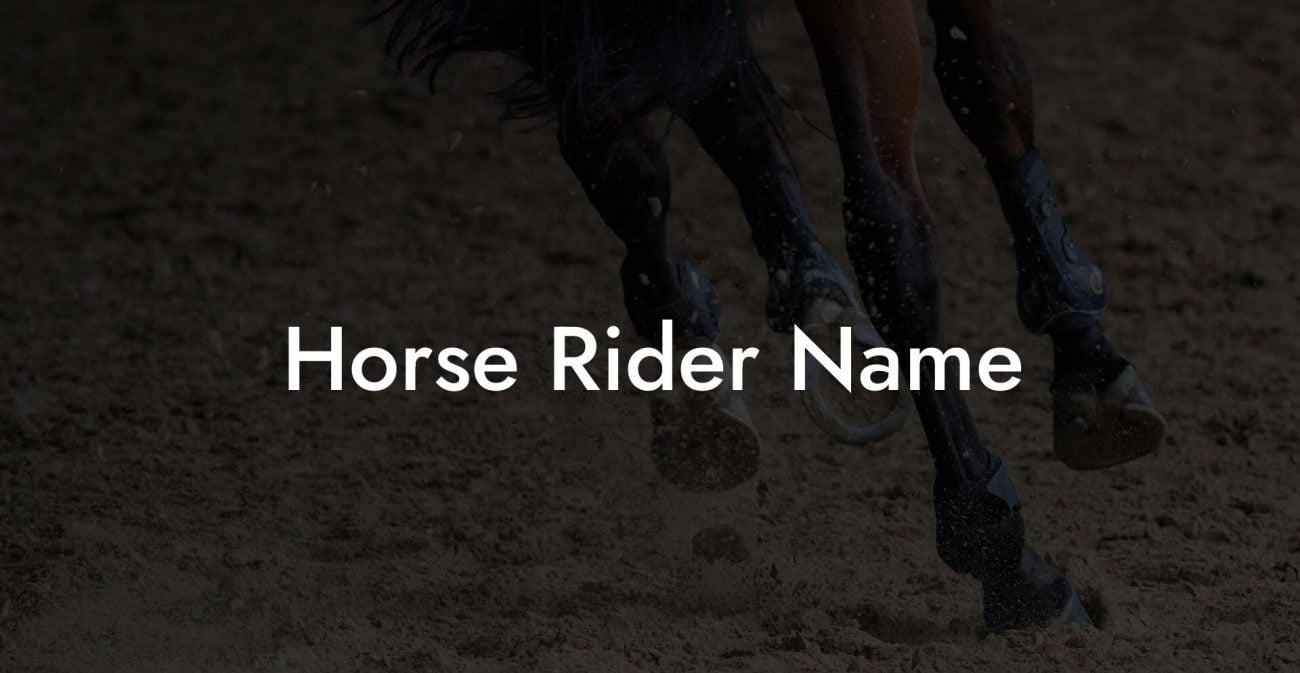Buckle up, because diving into the costs of horse ownership is like saddling up for an epic ride through fields of expenses, unexpected bumps, and plenty of heartwarming moments. Owning a horse isn’t just a hobby; it’s a lifestyle that demands commitment, creativity, and an appreciation for both the joys and the challenges that come with caring for your four-legged bestie. Whether you’re daydreaming about starting your own equestrian adventure or already keeping a majestic mane at home, understanding the true cost is essential to keep your wallet as happy as your horse.
Quick Links to Useful Sections
- The True Cost of Horse Ownership: An Overview
- Initial Costs: Purchasing or Adopting Your Equine Partner
- Buying a Horse
- Adoption and Rescue
- Ongoing Costs: Feed, Healthcare, Equipment, and More
- Feed and nutrition
- Healthcare: Veterinary, Farrier, and Dental
- Equipment and Supplies
- Boarding and Facility Costs
- Unexpected Expenses: Vet Bills, Emergency Care, and Upgrades
- Emergency Healthcare and Surgery
- Upgrades and Improvements
- Budgeting for Your Horse: Tips and Tricks to Manage Expenses
- Create a Detailed Annual Budget
- Prioritize Preventive Care
- Explore Group Buying and Community Discounts
- Create an Emergency Fund
- Leverage Technology and Apps
- The Role of Community and Resources in Reducing Costs
- Joining Equestrian Clubs and Organizations
- Work-Exchange Opportunities
- Educational Resources and Online Forums
- Case Studies: Real Stories of Horse Owners and Their Financial Journeys
- The Budget-Savvy Newbie
- The Experienced Owner’s Upgrade
- The Unexpected Emergency
- Innovative Ways to Reduce Costs Without Compromising Quality
- Collaborative Grazing and Feed Sharing
- DIY Stable Maintenance
- Second-Hand Equipment
- Leveraging Technology
- Managing the Emotional Costs: Stress, Fulfillment, and the Real Value of Horse Ownership
- Resources and Community Support: Your Next Steps in the Horse Ownership Journey
- Frequently Asked Questions about the Cost to Own a Horse
- Your Path to Confident and Sustainable Horse Ownership
The True Cost of Horse Ownership: An Overview
Owning a horse is a serious investment, with both tangible and hidden costs that can add up faster than a gallop on a breezy afternoon. The overall expense isn’t just about the initial purchase (or adoption) of your equine friend; it’s about the ongoing dedication required for proper care. From feed and veterinary bills to equipment and boarding fees, the financial outlay can be a wild ride for even the most seasoned equestrian enthusiast.
At the core, horse ownership transcends dollars and cents, it’s about ensuring that your horse enjoys health, comfort, and plenty of freedom to run wild. When budgeting for your horse, you’re investing in a lifestyle that blends discipline, love, and the occasional surprise expense that keeps you on your toes.
With a mix of necessary routine spending, emergency funds, and even a bit of flair for those unexpected moments, understanding and planning for these costs can save you from a financial pothole. Let’s break down the key components of what it really costs to own a horse.
Initial Costs: Purchasing or Adopting Your Equine Partner
The first major expense in your horse ownership journey is acquiring the horse. Whether you’re buying, adopting, or taking on a rescue, the initial outlay can vary widely based on factors like breed, age, training level, and pedigree.
Buying a Horse
If you’re in the market to purchase, be prepared for a price tag that ranges dramatically:
- Breed and Pedigree: Purebreds, show horses, and those with impeccable bloodlines often carry a premium. Premium breeds like Thoroughbreds or Warmbloods might set you back several thousands of dollars.
- Training Level: A horse that has undergone preliminary training or has competition experience will typically cost more. Well-trained horses not only perform better but also require a slightly lower initial training cost, balancing the expense over time.
- Age Factor: Young horses might be cheaper but could demand intensive training and time, while older, experienced steeds usually come with a heftier price but more refined skills.
The purchase price itself is just the start. Beyond that, you may need to invest in pre-purchase veterinary exams, travel expenses to inspect potential horses, and often a deposit to secure the sale.
Adoption and Rescue
If you’re leaning toward rescue or adoption, you might find that initial costs are considerably lower (or sometimes even free). However, don’t underestimate the importance of a thorough veterinary examination once your new friend arrives. Adoption fees usually cover basic vaccinations and spaying/neutering, but further investment in training and care may be necessary.
Either way, establishing a comprehensive budget for the purchase or adoption phase helps you plan for the financial journey ahead.
Ongoing Costs: Feed, Healthcare, Equipment, and More
Once you've welcomed your equine companion home, the real costs begin rolling in. Horse ownership is a continuous cycle of upkeep, preventive care, and occasional splurges on equipment. It’s important to look at these expenses over the course of a year rather than as one-off instances.
Feed and nutrition
Feed is one of the most consistent and significant expenses in horse care. Horses require a balanced diet that typically includes:
- Hay: High-quality hay is the foundation of a horse’s diet. Prices can fluctuate depending on regional availability and seasonal factors, meaning you might budget anywhere from $100 to $300 per month.
- Grain and Supplements: Depending on your horse’s working level, age, or health needs, you may need to provide additional grains or supplements. This cost can vary, but plan on spending an extra $50 to $150 monthly.
- Pasture Maintenance: If your horse grazes on your property, the expense of pasture care, fertilizers, reseeding, and maintenance, adds another dimension to your regular costs.
Moreover, water is essential; ensuring clean, fresh water daily, while seemingly negligible, is part of the ongoing resources you must account for.
Healthcare: Veterinary, Farrier, and Dental
Regular healthcare is non-negotiable in the equine world. Much like regular check-ups for humans, horses require protective vaccinations and disease prevention treatments.
- Veterinary Care: Annual exams, vaccinations, deworming, and preventive treatments can cost between $500 to $1,500 per year. More complex conditions or surgeries will naturally escalate this figure.
- Farrier Services: Regular hoof care, usually every 6-8 weeks, is critical for your horse’s overall health. Farrier costs may range from $40 to $100 per visit, totaling around $300 to $600 annually.
- Dental Care: Just like us, horses need dental checkups. Annual dental procedures typically range from $150 to $300.
In some cases, additional healthcare costs might emerge, such as emergency vet visits, specialized treatments, or even alternative medicine therapies (acupuncture, chiropractic, and physical therapy for horses are increasingly popular among millennial and Gen-Z owners).
Equipment and Supplies
For any horse owner with a sense of style and practicality, investing in the right equipment can make a world of difference. Essential gear includes:
- Saddles and Bridles: Quality tack isn’t cheap. A good saddle might cost anywhere from $1,000 to $5,000 or even more if custom-made. Bridles, girths, and other accessories add up as well.
- stable Equipment: This category covers everything from grooming kits, blankets, fly masks, and water buckets to stable bedding. Depending on the quality and quantity, these supplies can easily run into several hundred dollars annually.
- riding Apparel: Whether you’re an avid rider or an occasional jumper, investing in riding boots, helmets, and appropriate clothing is crucial for safety and performance.
Accessories might seem like small splashes of cash, but over time, they accumulate into a significant part of your yearly budget.
Boarding and Facility Costs
If your property isn’t equipped for horse housing, boarding becomes one of the steepest recurring costs. The price varies widely based on location, amenities provided, and the level of care:
- Full-Service Boarding: This option usually includes feeding, turnout, stall cleaning, and sometimes even basic health oversight. Prices can range from $600 to over $1,500 per month.
- Partial Boarding: In more rural settings or cooperative arrangements, you might opt for partial boarding, where you handle part of the care yourself. This reduces monthly fees, perhaps pricing around $300 to $800 per month.
- Pasture Boarding: A more basic arrangement where your horse is kept in a pasture with limited amenities. It’s less expensive, though you may need to commit more time to routine care.
Facility costs don’t stop at boarding. Some stables require membership fees, show fees for riding, and even facilities maintenance or insurance costs that help cover liability.
Unexpected Expenses: Vet Bills, Emergency Care, and Upgrades
Life with a horse is filled with surprises, many of which can be costly. Unexpected expenses are part and parcel of equine ownership, so it’s wise to set aside an emergency fund.
Emergency Healthcare and Surgery
Sudden illnesses, injuries during play, or accidents in the field may necessitate emergency veterinary care or even surgery. These events are unpredictable and can range from a few hundred dollars to $10,000 or more for complex procedures.
Many horse owners find it comforting to invest in an insurance policy specifically for their equine companion. Equine insurance can help cover catastrophic events or routine yet expensive treatments, though premiums themselves add a new expense to your annual budget.
Upgrades and Improvements
Over time, your horse’s needs may change. An upgrade might include new tack for a growing young horse, stable renovations for better comfort, or even installing improved security systems in your boarding facility. While not an immediate necessity, these upgrades are important for long-term horse welfare and can affect your overall budgeting.
It’s all about striking a balance, planning for the known expenses while still having a cushion for those “just in case” moments that take your breath away in both excitement and cost.
Budgeting for Your Horse: Tips and Tricks to Manage Expenses
Whether you’re a first-time horse owner or a seasoned equestrian, budgeting wisely is your ticket to enjoying the ride without financial stress. Here are some strategies to help manage the myriad of costs involved:
Create a Detailed Annual Budget
Start by listing all potential expenses, from feed to veterinary care, grooming supplies, and facility fees. Break down your spending monthly, and don’t forget to include areas like farrier visits and routine dental care. Having a detailed view of where every dollar goes makes it easier to anticipate expenses and avoid surprises.
Prioritize Preventive Care
Investing in regular preventive care can help you sidestep costly emergencies down the road. Routine vaccinations, regular check-ups with your vet, and timely farrier visits aren’t just good for your horse, they also make financial sense by reducing the chance of expensive treatments later.
Explore Group Buying and Community Discounts
The equestrian community is surprisingly tight-knit. Many owners pool resources when buying feed, equipment, or even arranging for group boarding discounts. Joining local riding clubs or online forums can open the door to deals and advice on cost-saving measures that work in your area.
Create an Emergency Fund
Experts recommend setting aside at least 5-10% of your annual budget into an emergency fund dedicated to unexpected expenses. That way, when the inevitable mishap strikes, you’re ready to handle it without wading into savings reserved for everyday living.
Leverage Technology and Apps
Budget tracking apps and equine management software have become increasingly popular among millennial and Gen-Z horse owners. These tools help you track spending in real-time and offer insights into where adjustments can be made. With a few taps on your smartphone, you can compare costs, schedule maintenance, and even receive alerts for due vaccinations or farrier visits.
In a world where everything is connected, using digital tools to keep your financial reins tight can transform a potentially overwhelming process into a streamlined routine.
The Role of Community and Resources in Reducing Costs
Being a horse owner isn’t a solitary journey, it’s an experience enriched by community support and shared resources. From mentorship with experienced owners to cooperative boarding arrangements, the equestrian world is surprisingly collaborative.
Joining Equestrian Clubs and Organizations
Local and online equestrian clubs provide not only support and advice but also opportunities for group discounts on feed, equipment, and even veterinary events. These communities are often hubs for exchanging tips on budget-friendly practices and sharing experiences about cost-saving measures.
Work-Exchange Opportunities
many stables and boarding facilities offer work-exchange programs that allow you to reduce your boarding fees by lending a hand with daily chores. Whether it’s mucking out stalls, feeding horses, or maintaining grounds, these arrangements build a sense of camaraderie and cut down operational costs.
Educational Resources and Online Forums
The internet is brimming with resources, from blogs and podcasts to detailed YouTube channels focused on equine care and finance management. Educating yourself through reliable sources can empower you with money-saving tips and innovative practices that ensure your horse is well-cared for without overspending.
Sometimes, the best investment you can make is in knowledge. Tapping into community wisdom not only saves money but also enriches your overall experience in the world of horse ownership.
Case Studies: Real Stories of Horse Owners and Their Financial Journeys
It’s one thing to read about cost breakdowns and budgeting strategies, but it’s another to hear from those who’ve been there. Let’s explore a few real-life stories that illustrate the financial realities of horse ownership and the innovative ways owners manage costs.
The Budget-Savvy Newbie
Jessica, a young professional with a dream of owning a horse, started her journey by opting for a rescue horse. With a modest adoption fee and a strict monthly budget, she quickly discovered the importance of maintaining an emergency fund. Jessica capitalized on community work-exchange programs at her local stable, which helped her significantly lower boarding costs. Today, she proudly manages a lean budget while ensuring her horse gets the best care.
The Experienced Owner’s Upgrade
Mark had been a horse enthusiast for over a decade. With years of riding experience under his belt, he decided it was time to upgrade his equipment and modify his stable for enhanced safety. While the initial costs were steep, Mark leveraged group buying options available through his equestrian club. He discovered that sharing the load of purchasing higher-quality tack and negotiating bulk deals on feed made his upgrades more financially manageable.
The Unexpected Emergency
When Sarah’s beloved mare, Bella, required emergency surgery after a severe colic episode, the mounting vet bills threatened to derail her budgeting plans. However, thanks to a well-established emergency reserve fund and her proactive decision to opt for equine insurance, Sarah managed to navigate the crisis without sacrificing Bella’s continuous care. Her story is a testament to the crucial role of preparedness in the unpredictable world of horse care.
These case studies remind us that every horse owner’s financial journey is unique. By planning ahead, leveraging community resources, and staying informed on best practices, you can tailor a strategy that works perfectly for your situation.
Innovative Ways to Reduce Costs Without Compromising Quality
You might think that cutting corners in horse care is a recipe for disaster, but with creativity and community support, you can reduce costs while still providing high-quality care for your equine companion. Here are a few innovative ideas to consider:
Collaborative Grazing and Feed Sharing
If you have friends or neighbors who are also horse enthusiasts, consider setting up a grazing co-op. By pooling orders for hay and feed, you can often negotiate lower prices with suppliers, getting discounted rates through bulk buying. This approach not only saves money but also fosters a sense of community.
DIY Stable Maintenance
There’s a wealth of online tutorials and resources on how to handle minor repairs and upgrades at your stable. From repainting stalls to maintaining fencing, taking on some of these tasks yourself can save you substantial labor costs while giving you a deeper connection to your horse’s home environment.
Second-Hand Equipment
High-quality tack and riding equipment don’t always need to be brand new. Local equestrian forums, swap meets, or even online marketplaces often have gently used saddles, bridles, and riding apparel. With patience and savvy shopping, you can score high-quality gear at a fraction of the retail price.
Leveraging Technology
Modern apps and online management tools can simplify everything from scheduling farrier appointments to tracking your horse’s health care routine. Many of these tools offer free tiers and can reduce administrative costs over time, making it easier to stick to your budget.
By integrating these innovative strategies into your routine, you can focus on enjoying the ride without constantly stressing about the bottom line.
Managing the Emotional Costs: Stress, Fulfillment, and the Real Value of Horse Ownership
Beyond the dollar signs, owning a horse brings an emotional investment that’s just as meaningful. The care routines, the challenges, and the successes all add up to a deeply fulfilling lifestyle. Sure, you might occasionally feel the pinch of those unexpected expenses, but the rewards, unmatched companionship, a sense of freedom, and even personal growth, often outweigh the financial strain.
Horse ownership teaches you resilience, resourcefulness, and the true meaning of responsibility. The down-to-earth nature of caring for an animal that depends on you for everything creates a bond built on trust, honor, and a shared zest for life. In many ways, the most transformative cost is the personal growth you experience along the way.
Resources and Community Support: Your Next Steps in the Horse Ownership Journey
As you navigate the multifaceted world of horse ownership costs, know that you’re not riding solo. There is a vast network of communities, organizations, and resources ready to support you. Whether it’s finding a local equestrian club, tapping into online forums, or attending workshops about equine care, proactive engagement opens doors to valuable savings and practical advice.
Start by exploring your local community centers, equestrian supply stores, and online resources. Many websites offer free webinars, budgeting templates, and detailed guides on everything from feed selection to advanced tack maintenance. Social media platforms like Instagram, TikTok, and YouTube have vibrant communities of horse enthusiasts sharing their day-to-day expenses, cost-saving hacks, and heartwarming stories that prove financial prudence and love for your horse can go hand in hand.
Don’t hesitate to reach out. Building relationships with fellow owners can lead to collaborative opportunities, discounted group rates, and even partnerships that transform the way you manage your equine lifestyle. Your journey toward sustainable, joyful horse ownership is just getting started, and every conversation could lead to new insights and savings.
Frequently Asked Questions about the Cost to Own a Horse
Curious about the nitty-gritty details and hidden costs? Here’s a roundup of frequently asked questions that dive into the financial side of horse ownership:
1. What is the average annual cost to own a horse?
The average annual expense varies widely based on location, type of boarding, and individual horse needs. Generally, you can expect to spend anywhere from $3,000 to over $10,000 per year when you factor in feed, veterinary care, farrier services, and equipment.
2. How do boarding fees affect the overall cost?
Boarding fees are typically one of the largest recurring expenses. Depending on the facility and level of care provided, boarding costs can range from a few hundred dollars a month for pasture boarding to over $1,500 monthly for full-service boarding.
3. Can I reduce costs by managing some care routines myself?
Absolutely. Many owners cut costs by taking on responsibilities like stable cleaning, exercising the horse, and even doing basic grooming at home. DIY approaches, paired with group buying for feed and supplies, can trim your budget significantly.
4. How important is an emergency fund?
An emergency fund is crucial in horse ownership. Unexpected veterinary treatments, emergency surgeries, or sudden equipment replacements can drive up costs unexpectedly. Experts suggest setting aside 5-10% of your annual budget for emergencies.
5. Is equine insurance worth it?
Equine insurance can provide valuable peace of mind, covering catastrophic events and high veterinary bills. While it adds to your annual cost, it often saves you from potentially devastating out-of-pocket expenses.
6. What are some common hidden costs of owning a horse?
Beyond the obvious expenses, hidden costs can include pasture upkeep, transportation for competition or vet visits, regular equipment replacements, and the occasional upgrade to keep your horse’s environment comfortable.
7. How do seasonal changes affect expenses?
Seasonal variations can impact costs. For instance, winter might bring higher fuel expenses for heating stables, while summer could mean increased investments in fly control and cooling systems to keep your horse comfortable.
Your Path to Confident and Sustainable Horse Ownership
The journey to horse ownership is as fulfilling as it is financially complex, blending hard numbers with priceless experiences. By breaking down initial investments, ongoing expenses, and unexpected costs, you set the stage for a well-planned and passionate equine lifestyle. With the right budgeting strategies, creative cost-saving measures, and a supportive community, you can enjoy the wonders of horse ownership without constantly worrying about the bottom line.
Embrace the adventure, plan for every scenario, and let your love for horses drive you to learn, adapt, and thrive. Every dollar spent is an investment in the well-being of a majestic creature, one that will offer loyalty, exhilaration, and countless memories in return.
Whether you’re just starting out or deep into your equestrian journey, remember that knowledge is power. Leverage the experiences shared by fellow owners, tap into practical online tools, and never be afraid to ask for advice. Your commitment to providing the best for your horse will always be rewarded with moments of pure joy, both for you and for your faithful companion.
So, saddle up for the ride of your life. With careful preparation, an open heart, and a solid financial plan, you’re more than ready to enjoy all the exhilarating ups and unexpected downs of horse ownership. The pasture awaits, full of challenges, triumphs, and endless opportunities to grow as an owner and as a person.

